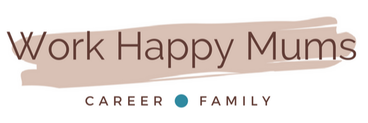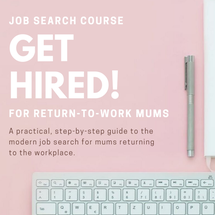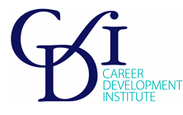|
A big thank you to everyone who participated in the WHM Career Change Week over in the WHM Facebook group, and to those of you who’ve been in touch with such glowing feedback - I’m happy to hear the thoughts and resources I shared have helped move you forward to discovering the career or job that’s right for you. Thanks too to Sara, Sophie, Magda, Julie and Claudia, for sending in your career change questions. Here are my answers: “I’ve just turned 40. Is it too late for me to start something new?”
Absolutely not! It’s never too late to make a change. Life and work experience are invaluable and any employer who fails to recognise this simply isn’t worth your time. We all have limiting beliefs - those thoughts we hold about our situation and ourselves that undermine us in some way. The more we tell ourselves something negative, the more our subconscious struggles to distinguish between fact and fiction and the more we start believing it’s true. “It’s too late to change careers at my age” is a great example of a limiting belief. Others include “No one will hire me with my skills and qualifications” or “I’m too busy to take the time to figure out what I want to do next". Listening to this negative inner chatter ultimately erodes your self-confidence so that changing career becomes an even more daunting prospect. For example, if you believe there are no decent, flexible jobs out there, then you will stop looking and won’t find solutions to land one. The secret to banishing these self-limiting beliefs once and for all is to develop a winning mindset. Only then will you have the confidence to take practical steps to kick-start your career search and find your ideal job. Here are my 3 tried and tested ways to manage your mindset: Be Creative Put your problem solving head on and ask yourself solution-oriented questions. For example, instead of saying “I can’t afford to change career,” ask yourself “how can I afford to change career?” or “what steps can I take to de-risk the situation?” You will be amazed at the results – by viewing your circumstances as problems that can be solved, you will be able to brainstorm positive ideas to help you change career direction. Focus on the positives Silence those negative voices in your head by flipping them into positives. Instead of telling yourself, “I don’t have any transferable skills” write down all the skills you have that are useful in any career, such as influencing, leadership and organisational skills. Don’t just limit yourself to workplace examples; take into account those skills you have developed in your day-to-day life – such as multi-tasking and communication skills. Move out of your comfort zone We are often our own worst enemies, talking ourselves out of career opportunities before we’ve even considered them properly. It’s important to recognise that limiting beliefs are often a self-protection mechanism – perhaps you aren’t applying for jobs because you are scared of the rejections. In my experience, mums returning to the workplace after a career break are particularly prone to talking themselves out of potential roles that should at least be researched, and possibly pursued. A good mantra in this situation is to ‘Feel the fear and do it anyway’ – it’s only by moving out of your comfort zone into your stretch zone that you will achieve your full potential and reap the rewards of increased self-esteem and confidence. As the late Norman Vincent Peale once said: “Change your thoughts and you change your world.” I couldn’t agree more! “How can I apply for jobs in a new field when I don’t have any experience?” The best place to start is by carefully reviewing the requirements (from job descriptions) for the positions that interest you the most in the new industry. What knowledge and skills are required? What experience is required? What type and level of education is required (or preferred)? Next, analyse yourself against the job requirements. Which of the job requirements do you fully meet, partially meet, or don’t meet at all? Think about the requirements you fully meet and brainstorm how you’ve used those required skills in the past, demonstrating to the hiring manager that your skills are transferable. Don’t forget to consider general skills that are transferable, no matter what the job or industry is. These skills include critical thinking, collaboration, creativity, and communication. For example, let’s say you are interested in a marketing role. Marketing requires strong communications, leadership, teamwork and project management skills, including understanding of the customer. Maybe you ran a fundraiser at your kids’ school. You likely used all of those skills to get the job done - led a team of volunteers, communicated with school administrators and parents, marketed the fundraiser to local businesses and service providers etc. If the job you are interested in asks for social media skills, then think of how you may have leveraged social media to market the fundraiser and include that as a bullet point. For each job requirement you don’t meet (or partially meet), brainstorm ideas on how you could gain the required knowledge, skills, experience, or education. Could you read books on the topic? Could you learn it on the job? Could you take an online or in-person class or attend a seminar? Would you need to obtain a new certification? It’s also worth reaching out to people who work in industries that interest you. Once they have a good understanding of your work experience and job skills, they’ll be able to provide insight into which roles in their field may be relevant to you, and which of your skills are transferrable and valued by a prospective employer in their field. Try not to beat yourself up over the fact that you don't fit perfectly into the mould of people who normally fill the positions you’re wanting to apply for. Instead, place your emphasis on your passion for this new field as well as the valuable things that you do bring to the table. And remember that experience isn't the only thing prospective employers are looking for. They also want to find the right person for their organisation. Many companies are far more concerned with personality and cultural fit. Plus, with less experience, you don't bring a lot of baggage with you. You’re a clean slate (at least in this field), and that's something you can use to your advantage. “What CV format should I use when applying for jobs in a new field?” For career change mums, I recommend developing a 'hybrid' CV with an expanded Career Profile/ Career Summary and bullet-pointed Skills/ Areas Of Expertise section, followed by a chronological employment history. You may be at a disadvantage compared to others with more extensive, relevant experience, so showcase everything that positions you for the role. Quantifiable achievements (see more on this here), voluntary, part-time or temporary work; specific skills or added qualifications all count. Be selective: only include information that supports your new goals, otherwise you'll blur the focus of your CV. Don't leave out work history though. Gaps can raise questions, so either account for the dates with a brief summary, or find something relevant to highlight. You’ll need to include a very strong cover letter with your CV. In it, you'll want to explain you're wanting to change careers and say why your existing skills make that a logical progression in your professional growth. Be specific, energetic, and persuasive. Tell your story. Share your passion. Express your desire to learn and explain what you've done so far to help make this transition possible (i.e., education, volunteering, etc.). Include this same information in your LinkedIn summary so people know why your past experience doesn't perfectly match up with your future career goals. "I’ve written a draft of my career change CV and cover letter and I'm about to start updating my LinkedIn profile. I’m not sure about my headline. Should I use my current job title?" It’s important that any potential employers looking at your profile see something there that resonates with your interest in their role. While your professional headline is usually your current job title and organisation, I suggest you edit this to make it more relevant to the job or industry you are wanting to move into: use keywords rather than a job title. In your summary section, give a brief explanation of those elements of your experience that are most relevant and highlight the area you are wanting to move into. Emphasise key transferable skills you know are relevant. Since you probably don’t have direct work experience in the are you’re moving into, think about how you can show your interest in other ways; through the companies you are following, the groups you are involved with, the sections you choose to include as part of your profile. Have you done any relevant volunteering? Have you been involved in individual projects which relate to this new sector? Can you highlight skills which you have identified as being relevant? Can you ask for recommendations that are relevant to your new area of work? When it comes to your LinkedIn profile and other job search documents, the trick is to fully embrace where want to be next, not where you’ve been. If you want to get a job in a new field, start acting like you are already there! “I’ve been applying for jobs in a new field for the past month but I’m not hearing anything back. What shall I do?” Network, network, network! I know that the idea of networking fills many of us with dread, but it really is the most efficient and effective way to get a job in a new industry. When your CV doesn't look like the typical CV for the field you’re wanting to move into, there’s a chance it won’t get through to the ‘yes’ pile. When you begin to network, you start to have conversations about what your career goals are, what your strengths are, and what you can offer to companies. These conversations will give you a much better shot of getting an interview or other valuable introductions, rather than hoping you’ll make it through the online screening process. Plus, you have the added bonus of getting to connect with real people - rather than getting more and more frustrated with the constant silence in your inbox. Start by making a list of the companies and industries you’re interested in working for. If you already know someone working at a company on your list, send them an email asking to set up an informational interview (see my post on Wednesday evening). Alternatively, try to find out where people at your target companies hang out. For example, if you’re interested in working on a marketing team for a tech company, are there related events or conferences you can attend? Most conferences have an outline of guest speakers and companies that are sponsoring, which will help you figure out which ones offer the best networking opportunities for you. You can also find other upcoming events online by looking up local professional organisations and checking out sites like Eventbrite and Meetup. This article is worth a read. It lists seven contacts to prioritise when networking for a career change: Cheerleaders, connectors, experts in your new field, membership director, alumni or career services at your college/ university, other career changers and entrepreneurs. I know it’s disheartening not to hear anything back after you’ve spent time and effort sending in applications, but try not to loose sight of where you want to go - instead try to find new ways of getting there. Melanie Fieseler is Director at Work Happy Mums, the go-to resource for return-to-work professional women and career advancers. At Work Happy Mums we're building a better future for working mothers and the organisations they work for. Join our community and help both our families and businesses thrive.
0 Comments
Leave a Reply. |
Here on the blog we offer insights and tips that will empower you to create a career and life that works for you wherever you are in your parenting journey.
Categories
|
Work Happy Mums: For women whose career and family counts.
|
Member of:
|
Contact me, I'd love to hear from you!
|
Subscribe to my newsletter
|
Work Happy Mums operates under the Career Development Institute Code of Ethics.



